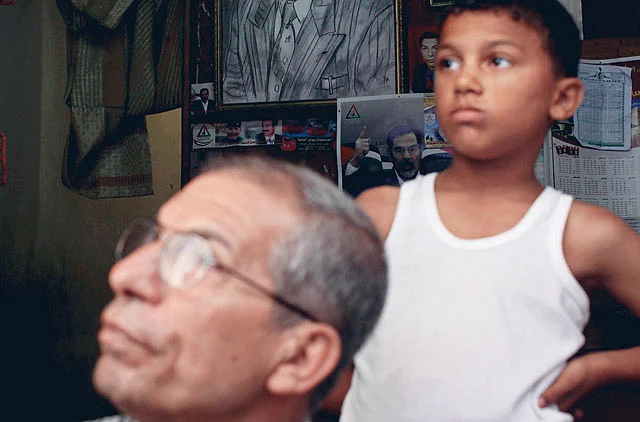Gaza Strip: From his ramshackle Gaza home, Palestinian Sobhi Hamami, 61, fondly recalls the 23 years he worked on an Israeli kibbutz, where he learned Hebrew, swam in the pool with Israeli friends and celebrated holidays with his Jewish boss.
His son Mohammad, 21, sees Israelis differently: "They're the enemy," he says, "without exception."
This generational split slices through families across Gaza, where older people remember when jobs in Tel Aviv and contact with Israelis were a short drive away, while those under 25 have grown up locked in, seeing little from Israel but fighter planes and bombs.
Israel has been tightening restrictions on who can leave Gaza for nearly two decades, finally imposing a strict blockade with Egypt when Hamas overran the territory in 2007.
This means Gaza's youth — 68 per cent of its 1.5 million residents are under 25 — have no contact with people outside, which critics warn could make them more susceptible to militant groups and calls to violence.
Widening gap
"We have a whole generation that has no chance to see the other, whether that other is an Israeli, a European, another Palestinian, anyone," said Hamdi Shaqqura of Gaza's Palestinian Centre for Human Rights. "This will push people more and more toward self-containment, further from other communities, and widen the gap with Israel."
The gap is clear in the crowded streets of this refugee camp, from which hundreds of men once commuted to Israel daily for jobs in industry, agriculture and construction. Most are now middle-aged and haven't left Gaza in years.
Still, they can recall Israeli towns in street-by-street detail and the names of Jewish colleagues, bosses and friends.
Mohammad has never left Gaza nor met a Jew. He has childhood memories of Israeli soldiers storming the camp during the Palestinian uprising that erupted in 2000, and clearly recalls Israel's three-week offensive last year to stop militant rocket fire on Israeli towns.
Gaza war
The war killed 1,400 Gazans, many of them civilians, and left swaths of the strip in ruins. Thirteen Israelis also died.
Their politics also differ. The father thinks violence is self-defeating. His son supports those who fight Israel.
"As long as they are fighting the army, we have to support them," Mohammad said.
"They fight the enemy that kills children and destroys homes."
Sari Bashi of the Israeli group Gisha, which advocates for Palestinian freedom of movement, said the lack of contact between Gazan and Israeli civilians leads to the "demonisation" of Gazans in the Israeli mind.
This she said, could lead to greater violence from the Israeli side.
"This separation is very dangerous for the future because if people in Gaza are not human beings, you can do pretty much anything to them," she said.
Sign up for the Daily Briefing
Get the latest news and updates straight to your inbox
Network Links
GN StoreDownload our app
© Al Nisr Publishing LLC 2025. All rights reserved.
